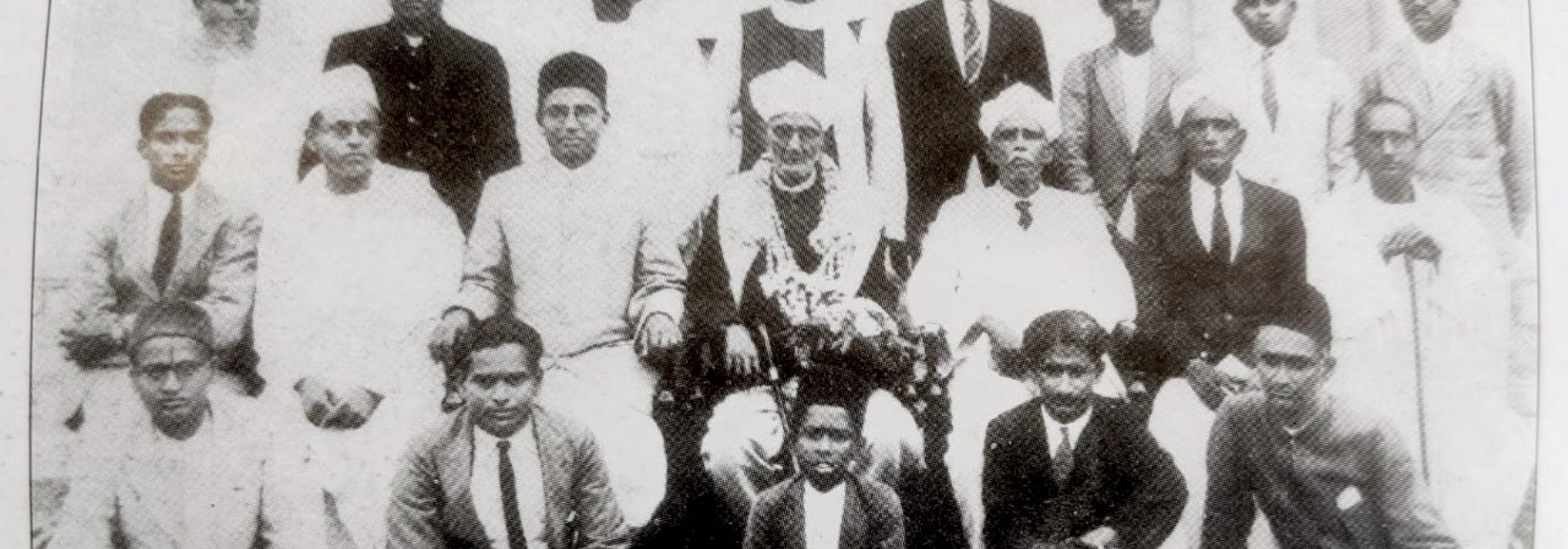The other key area of DVG’s political career was his sustained campaign for the cause of the Princely States. The volume of literature that DVG produced on just this issue easily runs up to more than a thousand pages. His seminal treatise on this subject are his memorials to the Maharaja of Bikaner. Overall, this corpus is an illuminating study in the fine art of political persuasion, patience, diplomacy, reform, and the courage to tell unpalatable truths in a manner that not only appeals but enlightens. In an ideal world, this work would have been prescribed reading material for students of political science at the university level written by a luminary who had failed his Matriculation examination.
Another important insight that emerges from DVG’s writings on the Princely States is the fact that he lived through both World Wars, which played a significant part in his understanding and formulation of the Indian situation as well. It also provides us a revelation of his astonishing and encyclopaedic grasp of international law. Not just that, he actually authored a full-length Constitution for the Princely States detailing on their relationship with the Indian Union after they merged.
During and after the merger of the Princely States, DVG directly locked horns with Sardar Patel and his deputy, V.P. Menon. He bluntly blames both for annihilating these States in the name of integrating them with India. This is his unforgiving assessment of Sardar Patel. It is both moving and tragic.
In the end, what united the Princely States and British India was not the efforts of the Rajas and Maharajas. Neither was it the efforts of their subjects. It was the haughty blow delivered by the Congressites who had come to power. Mainly, it was Vallabhbhai Patel’s arrogant attitude. In reality, it did not occur in a smooth fashion that had the consent of both parties. Patel did not think that the patient and contentious path of due process was appropriate. Neither did he require it.
The wife’s phlegm-filled flu had enveloped her head. Fury had consumed the husband’s hand. When both clashed, the vexed problem profusely dripped down the nose. But the diamond-studded nose-ring has been permanently lost in a rush to get rid of the dirt in the nose.
Did Princely States ever exist in India? The fact that this question is even being asked shows the extent to which they have been deformed and liquidated. If this was not enough, the regional borders that had existed for centuries on end have been chaotically littered under the guile of linguistic brotherhood. The old attachment to one’s local geography has been shattered. The new feeling of regional-love has remained elusive. The root of a Princely State as an institution is a kind of affectionate bond. Today, it has no place. While everybody is eager to grab the benefits of such an institution, nobody wants the quiet contemplation that births such an institution.
I suppose further commentary is unnecessary. All we can say is that DVG’s body of work on the Princely States is one of the most authentic primary sources to understand the history of this field spanning about half a century. In the words of his long-time friend and elder, V.S. Srinivasa Sastry,
Let me commend Mr. D.V. Gundappa to you. He is a good man and keen student of public affairs. What he doesn’t know of Indian States isn’t worth knowing.
Sri Sastry wrote this in a letter to a powerful Congress leader, M.R. Jayakar. Jayakar’s daughter, Pupul Jayakar eventually became a courtier of Indira Gandhi but that is a story for another day.
With that, I will offer DVG’s own Kagga to sum up his overall legacy in public life:
ಸುಲಭವೇನಲ್ಲ ನರಲೋಕಹಿತನಿರ್ಧಾರ ।
ಬಲಕೆ ನೋಳ್ಪರ್ ಕೆಲರು, ಕೆಲರೆಡಕೆ ನೋಳ್ಪರ್ ॥
ವಿಲವಿಲನೆ ಚಪಲಿಸುವ ಮನುಜಸ್ವಭಾವದಲಿ ।
ನೆಲೆಗೊತ್ತು ಹಿತಕೆಲ್ಲಿ? - ಮಂಕುತಿಮ್ಮIt isn’t easy in this human world to understand what is good and what is not,
Some look to the right, some to the left,
If you seek happiness in the ever-fickle human nature
How can you ever find its true source? – Mankutimma
This is the broad summary of how DVG trained himself to become a profound philosopher of practical politics. He harmonized its theory and sanctified its application. In the overall assessment, he can be called a Rājadharmātma, loosely translated as Sanatana Democrat.
I will close by quoting Sri Masti Venkatesha Iyengar’s extraordinary tribute to this imitable exemplar of the modern Indian Renaissance.
Fifteen years of hard and selfless service had…made Gundappa into a man of grit and incorruptible independence… Gundappa never looked for the appreciation of the work he was doing, by Government. He was a politician but belonged to no party. If he had joined the Congress in the earlier years, he could perhaps have been a minister in one of the administrations later. ln literature also he was indifferent to acceptance by the crowd, though maintaining high quality… Born poor, receiving no formal education beyond the secondary stage, and entering public life when he was about twenty years old, Gundappa worked hard and with a will to make something of life; and ended making it a great thing.
I once again express my heartfelt gratitude to the Gokhale Institute of Public Affairs and Prekshaa Pratishthana for providing me this opportunity to speak a few words on a stalwart and a sage whose legacy has humbled and ennobled me. And I hope you have found my submission useful.
Thank you!













































